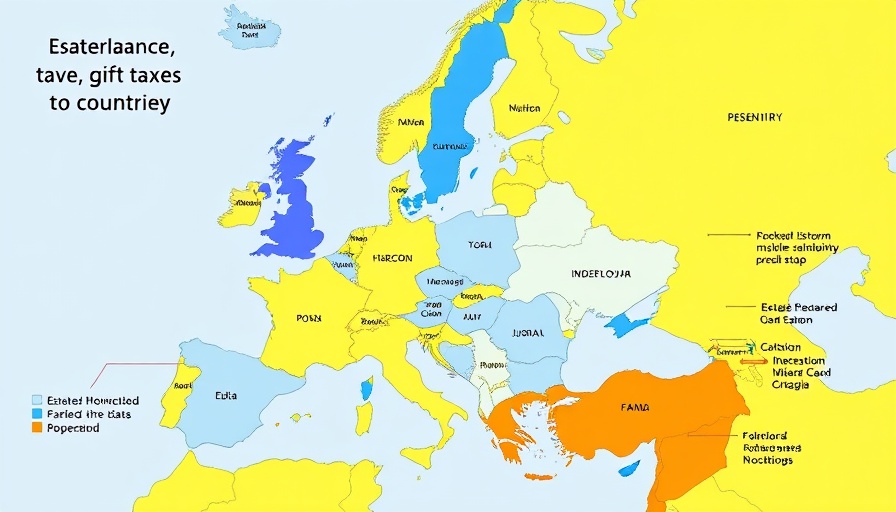
The Long History of Inheritance Taxes
Inheritance taxes have a rich history dating back to the Roman Empire, where a small percentage was collected to fund soldiers’ pensions. Fast forward to 2025, and these taxes continue to be prevalent across Europe, with 24 out of 35 countries imposing some form of estate, inheritance, or gift tax. Understanding the context behind these taxes can shed light on their relevance and impact today.
Diversity in Tax Structures Across Europe
European countries showcase a variety of approaches to taxation on estates and inheritances. For example, in France, the rates differ depending on the relationship between the deceased and the heir. Higher tax rates apply to transfers to non-relatives compared to those between close family. This nuanced system has implications for families and individuals planning their estates. Moreover, regions within countries like Belgium and Spain can have different tax rates, adding another layer of complexity for residents and businesses.
Potential Impact on Economic Behavior
Despite the potential benefits of reducing wealth inequality, the presence of estate, inheritance, and gift taxes may deter entrepreneurial activity and savings. The Organisation for Economic Co-operation and Development (OECD) has highlighted these taxes' limited revenue generation capabilities, prompting discussions among policymakers about their future. As countries grapple with economic pressures, assessing the viability of these taxes becomes crucial for fostering a thriving economy.
A Hurdle for Estate Planning
For individuals and families, navigating estate planning in this tax landscape can be daunting. With some territories imposing different exemptions and tax rates, proper guidance is essential to avoid double taxation, especially for individuals with cross-border considerations. Understanding these complexities not only prepares individuals for potential liabilities but can also unlock strategic opportunities for wealth transfer and tax benefits.
Conclusion: The Future of Inheritance Taxes in Europe
The evolution of estate, inheritance, and gift taxes in Europe raises significant questions about their future. With ongoing debates about their fairness and effectiveness, individuals planning their estates in 2025 and beyond must remain informed about the changing landscape. By considering both the potential tax implications and strategic planning opportunities, individuals can better prepare for what lies ahead.
 Add Row
Add Row  Add
Add 




 Add Row
Add Row  Add
Add 

Write A Comment